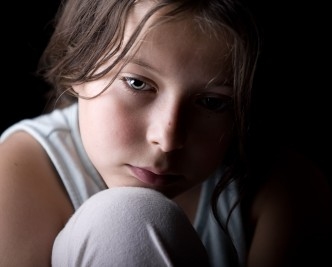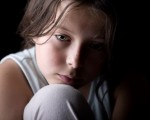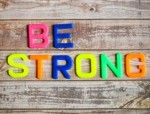How to Talk to Children About Tragedy
by Dr. Howard Paul, PhD, ABPP, FAClinP
 In this day and age, with television, the Internet and smart phones abounding, children are often exposed to information about tragedies at a very young age and with much more detail than we would ever wish.
In this day and age, with television, the Internet and smart phones abounding, children are often exposed to information about tragedies at a very young age and with much more detail than we would ever wish.
Sadly, sometimes our children will even be directly involved in some tragic, scary or potentially traumatic event. It is important for parents to understand that not all tragedies need to resulting psychological trauma and that more than half of all individuals who experience trauma survive without major negative psychological impact.
There has been growing field of study determining the elements that go into what has been called psychological resilience. As parents, we can teach these elements to our children. Helping children deal with trauma best starts before traumas occur by trying to provide kids with a positive attitude, a sense of efficacy and by teaching a “we’ll get through this” attitude.
While sheltering children from trauma, to the extent that it is possible to do so, is a very good idea, after a traumatic event such avoidant actions can create major problems. Traumas often create anxiety and the best treatment for anxiety is exposure. Using this knowledge in our after trauma management can become very important. If children become fearful, and no longer wish to stay in their room or are asking parents to stay with them throughout the night, using exposure tools is often a positive approach to dealing with this anxiety. Provide your child, or even have a togetherness project where you and your child make a “Brave Shield” can be a fun and productive activity. Once or twice a day, and then again before bedtime, have your child get their Brave Shield, arm them with the flashlight and have them search the house for monsters or bad people. After a while, children will begin to argue with you that they know the house is safe and there are no bad people are monsters around in their anxieties will reduce.
One very important factor in speaking to children this to help kids understand that loss and sorrow are normal, natural and need not be feared. Some of the views of our society do not help promote good mental health, in that, people often think that strength exists in anger and weaknesses in sorrow. I think the opposite is true. Being able to openly express grief and sorrow is to simply share human experience. There is a continuum of feelings that starts with joy and ends with sorrow. This continuum represents a natural and healthy range of human feelings. Once we are off that continuum, we are dealing with feelings that contribute to poor mental health. These feelings include anger, guilt, shame and fear (when there is no real object to be feared). Mourning, so critical in the resolution of loss, can never be fully achieved as long as anger is present.
A second important factor is to make sure that we are properly prepared, psychologically, before we speak to our children about any traumatic event. We need to be cautious to not amplify the negative aspects of trauma and to teach children that even apparently horrific events can be dealt with and managed psychologically. We want to teach children that bad things can happen. We want to stress that they do not happen very often.
We often believe that the world must work the way we want it to and, sadly, this is not the case. Just as it is important to teach children that they cannot always win, they cannot always have their way, that people do not always have to treat them the way they wish, it is important to help children understands that unpleasant, even tragic events do occur. On top of this we need to teach them that there is a difference between circumstances that are bad, even really bad and evil, and those that are impossible to cope with. In essence, we need to teach that no event is impossible to deal and, lastly it is most important that, from a psychological standpoint, we teach that we are capable of handling anything that comes our way.
Anyone who was lived for more than a few years will ultimately have to face the death or loss of a loved one or friends. Humans are built to withstand and survive losses. It is our job to teach children that no matter what, nothing is too big and we are not too small to manage. This does not mean that we can do everything. Only Superman can leap tall buildings with a single bound. We are talking here about an attitude of coping, not that we can accomplish every challenge. The most important part of the equation is that even if we cannot leap over the tall building, we still remain adequate and worthy human beings. It’s not too big, I’m not too small, and it isn’t too terrible to survive, coupled with the message that things can happen that we do not like, are the foundational messages of good coping and, in fact, good mental health.
Advice on Coping With Tragedy
by Dr. Howard Paul, PhD, ABPP, FAClinP
 Once again, we all are stunned by what appears to be yet another random act of violence that is ended in tragedy. Typically, the perpetrators of such violence are individuals who “just did not fit in” and who allowed their sense of being victimized to develop into a rage where they felt that others deserved punishment. One sad result is often the loss of many innocent lives.
Once again, we all are stunned by what appears to be yet another random act of violence that is ended in tragedy. Typically, the perpetrators of such violence are individuals who “just did not fit in” and who allowed their sense of being victimized to develop into a rage where they felt that others deserved punishment. One sad result is often the loss of many innocent lives.
As a psychologist, I want to present some ideas that might make dealing with such events a little bit more possible.
One prepares for disaster, any disaster, whether it’s shootings, earthquakes, tornadoes or even diseases such as cancer, by acquiring and constantly rehearsing a humanistic and reasonable belief system, and then working to strengthen those beliefs. It is this rehearsal of coping that occurs before we are tested that increases our ability to cope when faced with real trial, such as the tragic massacre of so many innocent lives that we witnessed in Newtown, Connecticut this past Friday.
Just as with any performance, it is important to practice before the concert, not at it or just after it. Such practice will not eliminate pain, but will reduce suffering when coping with tragedy or illness and facilitate our ability to survive and, in time again thrive.
Coping with tragedy entails learning and then strengthening three core beliefs. In the real world, bad things do happen. Contrary to what we wish, we cannot always win, be first, have our way and have things be fair. When we are children, we want things to be our way. It takes maturity to understand that the notion that we must have our way and, by extension that tragedy cannot strike us or our loved ones, only leads to anger. And this anger in turn can lead to depression, anxiety, and even illness. Mourning is only accomplished when anger is resolved.
It is important not to amplify the distress that bad, even tragic events cause. Trauma is survivable. Trauma and life-threatening circumstances and diseases can cause havoc for the victim (if it is a disease) and for their loved ones.
Be careful not to exaggerate the challenges trauma or diseases pose, so as not to think about them as impossible (too big) to cope with. Lurking behind “too big” lies the companion belief that we are too small. This is often hidden, but is part of this damaging “one-two punch”. When one perceives themselves as being too small to cope, it makes coping seem more impossible and makes us think that escape is the only solution. No amount of positive thinking can make a bad thing good, however, it does not take much faulty thinking to make a bad thing worse.
One needs to realize that humans are capable of coping with difficulties far beyond one’s accepted notion. The death of a loved one does not take away the capabilities of survivors to endure and, ultimately, continue productive, fulfilling lives.
Perspective and attitude are so critical in determining how one manages and copes through such trying times. It is important to personally remember and to teach our children that sorrow is not damaging and for us. It is not possible to shield our children from all sorrow, or even tragedy. Such dire times, while painful, provide an opportunity to teach important life lessons about resiliency and inner strength.
My heart goes out to the families and friends of the victims of the Sandy Hook Elementary School tragedy. May you find the inner strength to carry on as you move through the grieving process.
Grief and Loss – The Nature of Sorrow
 The first chapter in “The Heart of Psychology” explores the nature of sorrow; the gut-wrenching pain we all experience at times of loss. Whether the loss of a parent, a child, a friend, or a beloved pet, grief is real, tangible and awful.
The first chapter in “The Heart of Psychology” explores the nature of sorrow; the gut-wrenching pain we all experience at times of loss. Whether the loss of a parent, a child, a friend, or a beloved pet, grief is real, tangible and awful.
In this chapter of the book, Howard and Ed have a casual and very interesting conversation about grief and loss. At the heart of the discussion is the intensity of his feelings of grief and loss that Ed experienced when his beloved Yorkie, Duke, died. Ed expresses some confusion and feelings of guilt over the disproportionate level of
pain he felt at the loss of Duke, in comparison to that which he felt when his parents passed away.
Dr. Paul has incredible insight into the mind and how our emotions, responses and reactions to life’s experiences are so influenced by our early life experiences and attachments. This chapter is a “must read” for anyone who has experienced the loss of a loved one (whether two or four footed!). You come away from this enjoyable read with a lighter heart, with peace of mind in understanding that the depths of our sorrow mirror the strong feelings of attachment and love we enjoyed with our dearly departed.
 Howard Paul, PhD, ABPP, FAClinP
Eduardo Chapunoff, MD, FACP, FACC
Howard Paul, PhD, ABPP, FAClinP
Eduardo Chapunoff, MD, FACP, FACC



